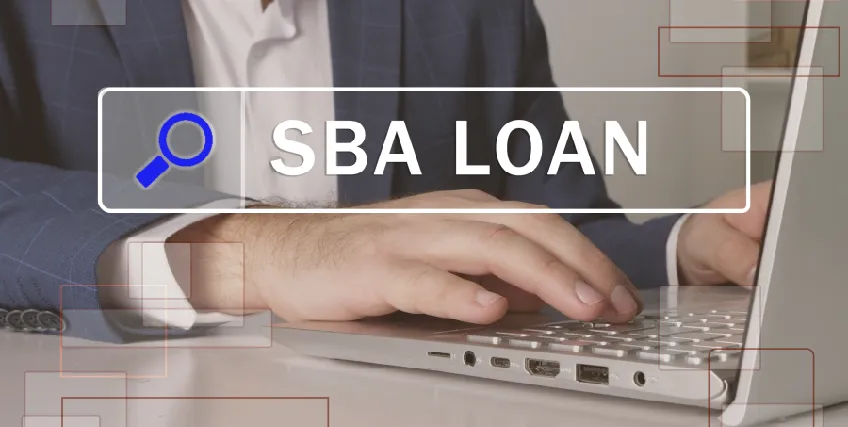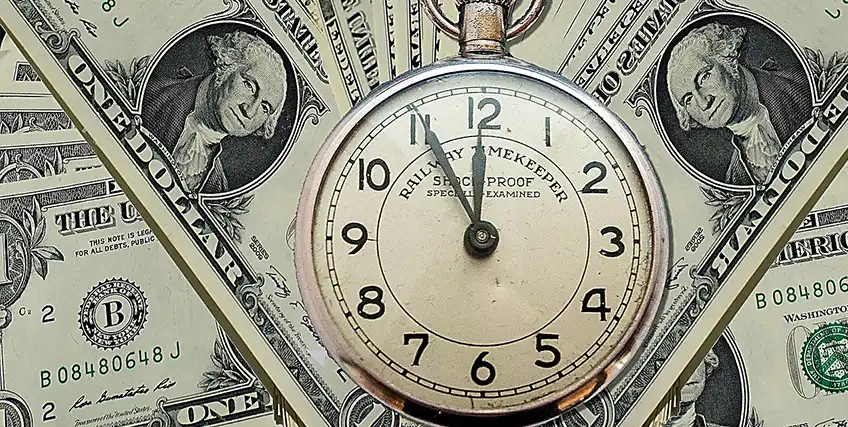Can You Get a Business Loan Without a Personal Guarantee?
October 04, 2025 | Last Updated on: October 04, 2025

Find out how you can get financing without backing it with personal assets.
Are you a business owner worried about putting up personal assets such as your house, car, or securities to qualify for business financing? You should be! You could end up losing your home, mode of transportation, or retirement savings if you are unable to make your loan payments.
Putting up a personal guarantee isn’t something that should be taken lightly. This article explains what you need to know to make wise decisions about offering up personal assets to get a business loan.
What is a personal guarantee?
When you make a personal guarantee on a small business loan, you give the bank permission to go after your personal assets, such as real estate, vehicles, artwork, jewelry, and other valuable items, if you cannot repay a loan.
Personal guarantees can be unlimited or limited.
- Unlimited personal guarantees make the business owner entirely responsible for repaying a business loan with their own assets. This type of guarantee is typically offered to businesses with a single owner.
- Limited personal guarantees make owners responsible for repaying a business loan up to a specified percentage. Limited guarantees are usually offered to businesses owned by more than one person.
Banks typically require personal guarantees for business loans for startups or companies with a limited credit history; the owner has a low personal credit score; or when the company is not in good financial condition or has too little business collateral to back the loan.
Bottom line: Getting a personal guarantee on a business loan makes the loan less risky for the lender.
Do all business loans require a personal guarantee?
It’s possible to get a business loan without a personal guarantee. Entrepreneurs can use business assets like company property, machinery, vehicles, or equipment to cover the loan.
If you cannot back the loan with any form of collateral, business or personal, it’s likely the terms required to obtain one will be much stricter, and the interest rate will be relatively high compared with secured loans.
What are unsecured business loans?
Unsecured business loans don’t require any collateral to get approved. There is no need to pledge real estate, vehicles, or other high-value assets when you obtain financing. Be aware that if your business defaults on the loan, your lender can still sue you to collect on the balance, which means they can still access your personal assets. Unsecured loans also typically come with higher interest rates and shorter terms than secured ones.
How does unsecured business financing work?
Unsecured loans work like any other type of business financing. They provide your business with funds for working capital or to take advantage of opportunities or handle emergencies.The only difference is that you don’t have to put up business assets or personal collateral to secure them.
Types of unsecured business loans include:
- Certain term loans, usually short-term loans
- Lines of credit
- Invoice factoring
- Business credit cards
- Merchant cash advances.
Some of these types of financing, such as invoice factoring, are relatively fast and easy to secure because you’re essentially turning over a percentage of your outstanding invoices to a factoring company. In this case, the financing is in a way backed by the value of the invoices, and the factoring company takes a relatively high percentage of the value to recover them.
Business credit cards and lines of credit are also relatively fast and easy to qualify for and secure, but the amount of financing they provide is usually relatively low. They could help with a limited-time cash emergency. Still, they’re typically not suitable for financing larger business initiatives, like buying a vehicle or business property or covering a significant emergency.
Short-term and long-term loans allow you to borrow more money, but the application and underwriting process can take a long time, mainly if you apply through a traditional bank or financial company. You might have to provide tax returns, financial statements, a current business plan, and more documentation to prove to a lender that your business is sound and you’re a reasonable credit risk. Getting this type of financing can be expedited if you work through an online lender.
Secured versus unsecured loans: Which are better?
Here are the pros and cons of the two types of business financing.
Secured loans
As I’ve already covered, secured financing requires the borrower to put up an asset to back the loan in case you cannot pay it back. The asset can be anything of value that can be sold relatively quickly, such as business machinery, a home, or a vehicle.
Common examples of secured financing include real estate mortgages, equipment financing, and car loans. If the borrower defaults on payment, the lender assumes ownership of the asset the funding was used to purchase and can use it to collect on the loan balance.
Pros of secured loans
- Ideal for purchasing business property or funding significant initiatives.
- Loans typically come with lower interest rates and more favorable terms than unsecured financing.
- Secured loans can be used for a wide range of business needs.
Cons of secured loans
- Many business owners don’t have the personal assets or business collateral to qualify for secured financing.
- Obtaining a secured loan, especially through a traditional bank, can take a long time, often a month or more.
- Business owners could lose valuable personal assets or essential business equipment or property if they default on a loan.
Unsecured loans
Unsecured loans don’t require any collateral to get approved. This allows business owners to obtain financing fast to help with cash flow needs or deal with smaller emergencies. You can often secure this type of financing with relatively high interest rates and short terms through online lenders or alternative financing companies. If you have excellent credit, you may qualify for unsecured loans at somewhat better interest rates.
Pros of unsecured loans
- Borrowers don’t have to use business or personal assets as collateral.
- There’s less chance of losing something of value with an unsecured loan.
- Financing can be secured relatively quickly.
Cons of unsecured loans
- If the borrower defaults on payment, the lender may initiate a lawsuit to collect any funds owed.
- Loan amounts are relatively small, interest rates are high, and terms are short, usually a year or less.
- These types of loans are often offered through less-than-reputable providers. You must do your due diligence to ensure you get financing from a sound lending institution.
No matter the financing type, the financial institution will pull a credit report to determine creditworthiness.
Does business structure impact guarantees?
To obtain a business loan without a personal guarantee, you should set up your business as either a corporation or limited liability company (LLC) and then work on building business credit quickly. Once you do, you will more likely qualify for a loan without putting up personal assets.
If you set up your business as a sole proprietorship or partnership, you will likely need to offer up a personal guarantee or business collateral to get approved for a loan with favorable lending terms. If you’re determined to get a business loan without using collateral, you must have an excellent credit score, a long history of running the company, and sound business financials.
Securing a business loan with no personal guarantee
The first step you need to take to get unsecured financing is to determine which type of loan option is right for you.
Term loans
Term loans provide a lump-sum amount of cash to small business owners that they pay back with interest over time, which is the term of the loan. It’s sometimes possible to get a short-term business loans not backed by collateral through an online or alternative loan provider.
It’s rare to get unsecured financing through a traditional bank or financing company or from a loan backed by the U.S. Small Business Administration. It’s almost impossible to get long-term financing without collateral. Unsecured term loans often come with relatively high interest rates, especially when compared with secured funding. Secured loans come with lower interest rates and relatively long terms.
Unsecured business lines of credit
With this type of financing, a lender approves you and your business for a specified amount that can be borrowed against you whenever needed. It is similar to a credit card in that you use only what you need, and interest is charged on the amount borrowed, not the total funding available. Unsecured business lines of credit are best for working capital needs or for getting through unexpected emergencies. Business lines of credit are typically approved for relatively small amounts.
Merchant cash advances
This financing gives small business owners a specific amount of money based on projected sales. The advance is repaid as customers pay for goods or services on a daily, weekly, or monthly basis. Merchant cash advances usually come with extremely high interest rates. It’s crucial to thoroughly understand the repayment agreement before taking on a merchant cash advance.
Business credit cards
Similar to a business line of credit, a business credit card provides your company with a specified (often very limited) amount of money that can be used as needed. Interest and monthly repayments are based on the amount borrowed and the terms of the agreement. This financing is best for working capital needs, everyday expenses, and emergency funding. It’s a good idea to pay for most business expenses with a business credit card. It’s an excellent way to separate business and personal spending for accounting and tax reasons. Make sure you pay the money back quickly because interest on business credit cards can add up over time.
Equipment financing
Equipment financing is used to buy equipment and machinery for your business. While an equipment loan typically doesn’t require a guarantee, the equipment is technically used as collateral. If the business defaults on repayment, the lender can seize the equipment to get back the loan balance. Equipment financing interest rates are lower than for most other types of debt.
Invoice financing
There are several types of invoice financing. What they have in common is that they all require turning over customer invoices in exchange for funding. The amount of funding you can get through invoice financing generally ranges from 50 to 80 percent of the value of the invoices depending on the risk profile of the customers behind the invoices. Once the invoice is paid, the business receives more of its proceeds. The lender charges the company a fee for invoice financing, which can be very high. While this type of financing can be obtained without a personal guarantee, the invoices act as a type of guarantee.
Find the right provider and apply for loans
Once you identify the type of financing you want, take time to research providers. You can typically get business credit cards through local banks and credit unions. You can access business lines of credit through these same sources, along with online lenders. The top source for unsecured term loans is online lenders. Other types of financing are available through specialized funding companies and alternative lenders.
Once you decide on the type of provider that’s right for you, find a reputable one to work with. Get the paperwork together that you’ll need for the application process, including tax returns, financial statements, income, and other business projections. Finally, apply for a loan. You’ll typically receive quick approval, usually within a few days or faster, from online and alternative providers. Financing from traditional banks and SBA loans can take weeks to a month or more.
FAQs
How to get a business loan without personal guarantee?
If you want a business loan without a personal guarantee, you need to do the following things:
- Form your business as an LLC: This can make qualifying for a loan easier without using personal assets.
- Build business credit: A solid credit score is good.
- Demonstrate strong cash flow: Make the lenders sure that you will repay the loan amount.
- Provide financial data: Show your financial data history that shows sustainability
- Organize documentation: Your documents should be organized.
How to get a small business loan without personal guarantee?
If you want a business loan without a personal guarantee, you need to do the following things:
- Form your business as an LLC: This can make qualifying for a loan easier without using personal assets.
- Build business credit: A solid credit score is good.
- Solid business plan: You should have a clear business plan.
- Demonstrate strong cash flow: Make the lenders sure that you will repay the loan amount.
- Provide financial data: Show your financial data history that shows sustainability.
- Organize documentation: Your documents should be organized.
Can you get business loans without a personal guarantee?
It is possible to get a loan without any personal guarantee. Still, this can be difficult and generally demands a strong business credit score, substantial collateral such as company properties, or particular financing options, including merchant cash advances securing the loan against future sales. This may not require a personal guarantee. However, the terms and interest rates may be less favorable in comparison to loans with personal guarantees.
How to avoid a personal guarantee?
To ensure a mutually beneficial agreement, limit your liability under the guarantee to a specific percentage of your net personal wealth. You can exclude certain assets, such as your primary residence or ownership stake in the business. If necessary, you can explore alternative forms of collateral to secure the debt.
How do I remove a personal guarantee from my business loan?
If you want to remove a personal guarantee from your loan, ask your lender for the same. It seems counterintuitive, as your lender wanted in the first place. Despite that, there are two reasons why your lender would remove personal guarantees: operational performance and external market shifts.




